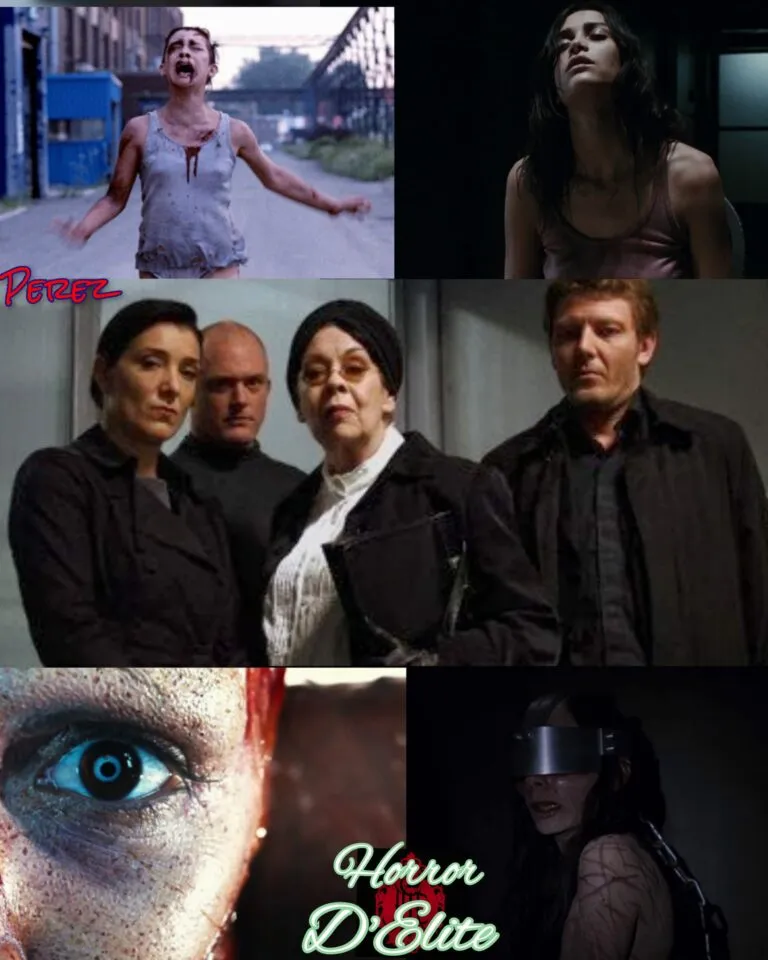Titane
Titane
Directed by Julia Ducournau
France 2021
Plot
Alexia is a young woman whose past is marked by a terrible car accident with her father during her childhood. After undergoing surgery, where a titanium plate is installed in her skull, she develops a morbid relationship with cars as she grows up. This leads her to perform sexy dances in adult clubs.
In addition to this, she leads a secret life as a serial killer. She murders anyone who tries to have intimate relations with her, using a large hairpin as her weapon.
However, things start to take a drastic turn when she discovers that something within her is changing.
Considerations
Julia Ducournau’s second film, following the brilliant Raw, is a complex physical and psychological odyssey that both overwhelms and disturbs the protagonist Alexia.
Layered and hard to categorize within a single genre, the film shifts from thriller to erotic, psychological to body horror, while staying faithful to a precise and modern vision of cinema.
Ducournau carries the tone from Raw into this film, creating a recognizable mood in her cinematic style: a girl living in a specific family context who undergoes internal changes, which also have real and physical consequences on those around her.
Alexia is a complex character, her past is clearly shown to us, which helps us relate to her ambiguous profile—a woman of few words but with a hidden and impenetrable inner world.
At the start, we see her dancing and writhing on the hood of a car as a captivated audience watches and objectifies her body. She then has an intense sexual encounter with a Cadillac, kills her friends and family, flees, and adopts a new identity as Adrien, becoming a “new father” at a fire station while hiding a pregnancy until the shocking, inevitable finale.
The film is filled with intertwined plotlines and clear inspirations from filmmakers such as Cronenberg, Carpenter, and Tsukamoto, with a touch of Stephen King’s Christine. Yet, Ducournau’s second feature doesn’t truly resemble anything else ever seen before.
Technically, the film is commendable, filled with lights, colors, glances, close-ups, music, details, and a stunning cinematography. The direction, not overly sophisticated, unflinchingly shocks the viewer, showcasing cuts, blood, and bodily fluids. Ducournau, already experienced and confident, doesn’t hold back. The film begins with a young girl severely injured in a car accident and ends with a profoundly disturbing scene.
The performances are nothing short of excellent, with every actor perfectly in sync. The stellar lead, Agathe Rousselle, carries the weight of the entire film with no signs of faltering, and she’s complemented especially in the second half by the equally brilliant Vincent Lindon (as Vincent, her second father).
Titane is a bold and extreme film, both in its content and its message. It dares to go far, takes itself seriously, and convinces where, in other contexts or films, such grotesque situations and impossible moments would be laughable or ridiculous. Here, everything is believable.
Through Titane, Ducournau lovingly examines monstrosity, with all its inherent fascination, repulsion, hope, and creativity.
Perhaps it’s this concept of invention that explains how Titane won the 2021 Palme d’Or at the Cannes Film Festival.
Pandemonium Moment
During a private party, Alexia commits a massacre to the tune of “Nessuno mi può giudicare” by Caterina Caselli.

Subscribe to our YouTube channel






